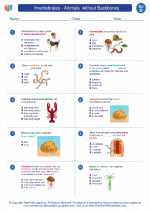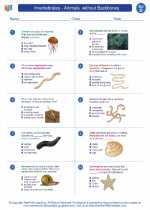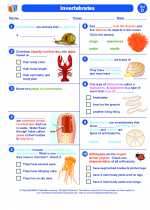Excretory System
The excretory system is responsible for removing waste products from the body. It consists of several organs, including the kidneys, ureters, bladder, and urethra.
Organs of the Excretory System
- Kidneys: The kidneys filter the blood to remove waste products and excess substances, producing urine as a result.
- Ureters: The ureters are tubes that carry urine from the kidneys to the bladder.
- Bladder: The bladder stores urine until it is expelled from the body.
- Urethra: The urethra is the tube through which urine passes from the bladder out of the body.
Functions of the Excretory System
The excretory system performs several important functions:
- Waste Removal: It eliminates waste products such as urea, ammonia, and excess salts from the body.
- Regulation of Water and Electrolyte Balance: The excretory system helps maintain the balance of water, salts, and other electrolytes in the body.
- Acid-Base Balance: It regulates the pH level of the blood by excreting hydrogen ions and reabsorbing bicarbonate ions.
- Regulation of Blood Pressure: The excretory system helps regulate blood pressure by controlling the volume of blood and the concentration of electrolytes in the blood.
Disorders of the Excretory System
Disorders of the excretory system can lead to various health problems, including kidney stones, urinary tract infections, and kidney failure. It is important to maintain a healthy lifestyle, drink an adequate amount of water, and seek medical attention if any symptoms of excretory system disorders are present.
Study Guide
Use the following study guide to review the excretory system:
- Describe the functions of the excretory system.
- List the organs of the excretory system and their roles.
- Explain the process of urine formation in the kidneys.
- Discuss the importance of maintaining a healthy excretory system.
- Identify and describe common disorders of the excretory system.
Remember to review the functions, organs, and disorders of the excretory system to ensure a comprehensive understanding of this important bodily system.
.◂Science Worksheets and Study Guides Fourth Grade. Invertebrates - Animals without Backbones
Study Guide Invertebrates - Animals without Backbones
Invertebrates - Animals without Backbones  Activity Lesson
Activity Lesson Invertebrates - Animals without Backbones
Invertebrates - Animals without Backbones  Worksheet/Answer key
Worksheet/Answer key Invertebrates - Animals without Backbones
Invertebrates - Animals without Backbones  Worksheet/Answer key
Worksheet/Answer key Invertebrates - Animals without Backbones
Invertebrates - Animals without Backbones  Worksheet/Answer key
Worksheet/Answer key Invertebrates - Animals without Backbones
Invertebrates - Animals without Backbones  Worksheet/Answer key
Worksheet/Answer key Invertebrates
Invertebrates  Vocabulary/Answer key
Vocabulary/Answer key Invertebrates - Animals without Backbones
Invertebrates - Animals without Backbones  Vocabulary/Answer key
Vocabulary/Answer key Invertebrates - Animals without Backbones
Invertebrates - Animals without Backbones  Vocabulary/Answer key
Vocabulary/Answer key Invertebrates - Animals without Backbones
Invertebrates - Animals without Backbones  Vocabulary/Answer key
Vocabulary/Answer key Invertebrates - Animals without Backbones
Invertebrates - Animals without Backbones  Vocabulary/Answer key
Vocabulary/Answer key Invertebrates - Animals without Backbones
Invertebrates - Animals without Backbones 

 Activity Lesson
Activity Lesson
 Worksheet/Answer key
Worksheet/Answer key
 Worksheet/Answer key
Worksheet/Answer key
 Worksheet/Answer key
Worksheet/Answer key
 Worksheet/Answer key
Worksheet/Answer key
 Vocabulary/Answer key
Vocabulary/Answer key
 Vocabulary/Answer key
Vocabulary/Answer key
 Vocabulary/Answer key
Vocabulary/Answer key
 Vocabulary/Answer key
Vocabulary/Answer key
 Vocabulary/Answer key
Vocabulary/Answer key

The resources above cover the following skills:
Life Science: The students will use scientific skills and processes to explain the dynamic nature of living things, their interactions, and the results from the interactions that occur over time.
Diversity of Life: Explain how animals and plants can be grouped according to observable features.
Classify a variety of animals and plants according to their observable features and provide reasons for placing them into different groups.